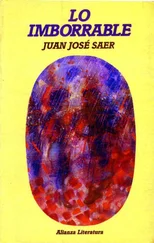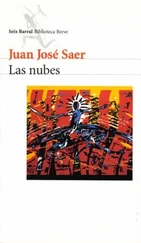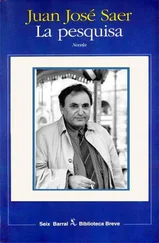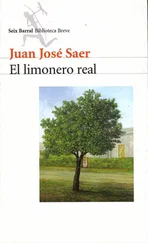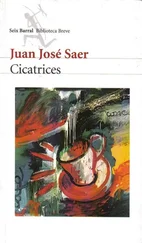When we arrived at her chamber, I saw that the Mother Superior’s eyes were full of tears and, taking pity, I tried to console her, explaining that madness ought not be judged by moral standards nor addressed within our usual categories of thought. After a time, the Mother Superior seemed to quiet and, as I bid her goodbye, I noticed her attitude toward me had changed; she appeared to have set aside her mistrust. However, when we parted, the unpleasant sensation remained that the Mother Superior had not told me the whole truth about the little nun.
A surprise witness would confirm this for me a few days later. Notified of my presence in the city, Dr. López, a local physician and friend to the Parra family, invited me to visit him — out of politeness to be sure, but also to discuss several matters important to the due practice of our profession, and to consult upon a few difficult cases he had been treating in the hospital. That hospital was once Jesuit and has since been restored to them on their return to America; if my information is correct, it was in those years under the charge of the Franciscans, who had, to put it one way, “annexed” the neighboring monastery. If anything can suggest the general poverty that reigned in that city, and how only a few families were spared, it is the fact that the chapter-house, the hospital, and the jail operated out of the same building, a long chorizo , as the cheeky local idiom had come to name all constructions with a plan that, vertical or parallel to the street, extended in a single long line of rooms, or in two, separating at a courtyard and meeting at the front to form the building’s main body. In this building, shaped then like a squared-off U , the façade, where the government, the administration, and a small police station were located, occupied an entire block on the main plaza, and of the two wings extending from the façade to the river, one lodged the hospital and the other, like its grimmer reflection across the courtyard, the jail and the customs-house.
Out of some fifteen patients, two or three thorny cases required a consultation — the rest posed no problem since a mere glance told me there would be no cure — and once we finished examining them, my colleague, an older man who impressed me with his clear experience and insight, glanced all around as if in fear of committing an indiscretion. He told me there was another case he wanted to submit to me, but that we would examine him in a chamber adjoining the common area, where he had his office. That said, he signaled to a male nurse who had been circling us persistently during our visit to the common area. The nurse left the office immediately and, through a window, I saw him briskly cross the courtyard toward the jail. As soon as we were settled in his office, my colleague explained the reason for all this intrigue: As everyone already knew that I had come to the city to fetch Sister Teresita for admission at Las Tres Acacias, the nurse, who was a cousin of the nun’s supposed rapist, had begged the doctor to hear the convent gardener’s version of events, which was quite different from the one issued by the ecclesiastical authorities. Only the fact of this contradiction had staved off the firing squad, but the gardener’s defenders had not managed to dispel the threat altogether. Dr. López was convinced that the gardener spoke the truth, and he had the utmost confidence in the cousin, his main collaborator for years. A small clerical faction supported him, especially among the Franciscans, but the Church refused to admit that the little nun’s conduct — the hypothesis of a demonic intervention had been rejected — was due to, as it were, natural if inexplicable causes, and preferred, perhaps in the hope that the sin of some person outside the Church might explain the events, to maintain the gardener’s guilt. The doctor told me the gardener admitted to having had carnal relations with the little nun, but he denied in the most energetic, even horrified, fashion, having violated her and particularly insisted that, if they had been found in circumstances that might be considered sacrilegious, it had been unexpected and against his will.
A few minutes later I heard, in greater detail, that version of events from the gardener’s very mouth. Despite suffering months in prison, his appearance was that of a vigorous man and his manners those of an honorable person, and he must have been younger than his air — that of being overwhelmed by the situation — made him appear. His story seemed all too plausible, especially his description of the little nun’s behavior, so well did it coincide with several similar cases I had treated with Dr. Weiss, and the gardener could not have invented certain characteristic details of that type of derangement on his own. In the transcript I made of his words I will address the obligation, as I believe I have already warned above, of using several terms and turns of phrase that might sound overly harsh to certain listeners who — with all due respect — consider themselves decent, but it is necessary to keep in mind that, in mental illness, the afflicted subjects’ vocabulary and conduct differ completely from those of healthy persons. (The use of Latin borrowed for the scientific tract seems out of place in the case of this personal report, which addresses hypothetical readers. I cannot prejudge if they will or will not be men of science, a detail, for its part, that is secondary to the present manuscript. But as a more general reflection: What can be the aim of putting certain parts of the body and certain acts into Latin that, without Latin or any language at all, humans and animals use and carry out every day?)
The gardener, from the very start of his story, proved his sincerity in several ways, acknowledging his carnal relations with Sister Teresita for example, and also always referring to the nun without the slightest animosity, as if despite all that happened and the precarious situation he found himself in, he had preserved the liveliest sympathies toward her. For the gardener, it was the Mother Superior who was refusing to see the facts as they had truly occurred. And another important detail that seemed to confirm the gardener’s sincerity was the justification he gave for his conduct: According to him, it took a long time to realize the little nun was acting strangely, and that things she said or did, if he had attributed them at first to an unbridled lewdness, must have actually been caused by madness. The gardener stated that all the while it was he who had felt himself under the little nun’s influence and that sometimes he even had the feeling she was subjecting him to a sort of violence. That inability to recognize madness is in no way unusual, and I would even dare assert that he is nothing out of the ordinary, that such inability was no phenomenon of isolated individuals, but rather of entire nations which, as history has already repeatedly shown, may be under an influence like the gardener, and driven into the abyss by the seemingly flawless logic of delusion, when in fact all logic has been abandoned.
The gardener said he had been working in the convent for a few months without even noticing the little nun, who, aside from youth, lacked any special charm, and that things would have doubtless continued that way if her insistent glances, which became most suggestive when they were alone — the gardener told us this in slightly coarser language than I now employ in writing thirty years later — hadn’t attracted his attention, first intriguing him without a thought for what would happen later, but then drawing him in that direction. When he confided this to his cousin, who worked in the hospital, a fact that the cousin confirmed immediately, the cousin told him the little he knew of Sister Teresita: namely that, among their principal tasks, the Handmaids of the Blessed Sacrament cared for women of ill repute, and a few gossiped in the city — where young girls, as in every city, think they know everything even when they do not — that the young nun, who was overly familiar with women of ill repute and was sometimes peculiar in word and bearing, had a tendency to overstep the bounds of her mission. But everyone acknowledged her to be genuinely kind, and she was quite popular among the poor, especially those who had given themselves over to fallen ways — not just camp-following prostitutes or the harlots who plied their trade in shacks along the outskirts, but also deserters, cattle thieves, robbers, vagabonds, murderers. Some said they had seen her sitting in a hovel doorway, smoking a cigar, talking and laughing with a couple of whores. Others said she didn’t decline to take a pull if someone thought to offer, and two or three even claimed to have seen her once, habit-sleeves rolled up, playing jackstones with a cluster of gauchos and soldiers on the porch of a general store. But they were only rumors. Of all those who circulated the stories, not a single one had, if pressed, been able to provide a witness for what was said. The gardener said the little nun was simply kind to him at first, but that one day, when he had gone into the chapel on a whim, he’d seen her climb the altar and rub the crucified Christ’s drapery across his groin. On taking in the scene in the dim chapel, which he’d entered while still a little dazed from the brightness outside, he thought the little nun had been cleaning the statue, but he then saw her rise up on tiptoe from the chair she’d clambered up on to better reach the desired height, and the little nun began to lick the drapery in the same spot she had just been rubbing. The gardener had made a small, inadvertent noise that made her turn, peering into the half-light until she found him at the end of the chapel. The gardener said he was afraid that the little nun was going to dress him down on being caught, or become angry at the intruder who’d spied on her, but that, to his surprise, she didn’t show the slightest alarm and smiled at him, and perched on the chair as she was, signaled to him to come closer. When the gardener told me this, it reminded me of the little nun’s crooked index finger and innuendo-filled smile some days earlier, urging me to take a few steps toward her.
Читать дальше



